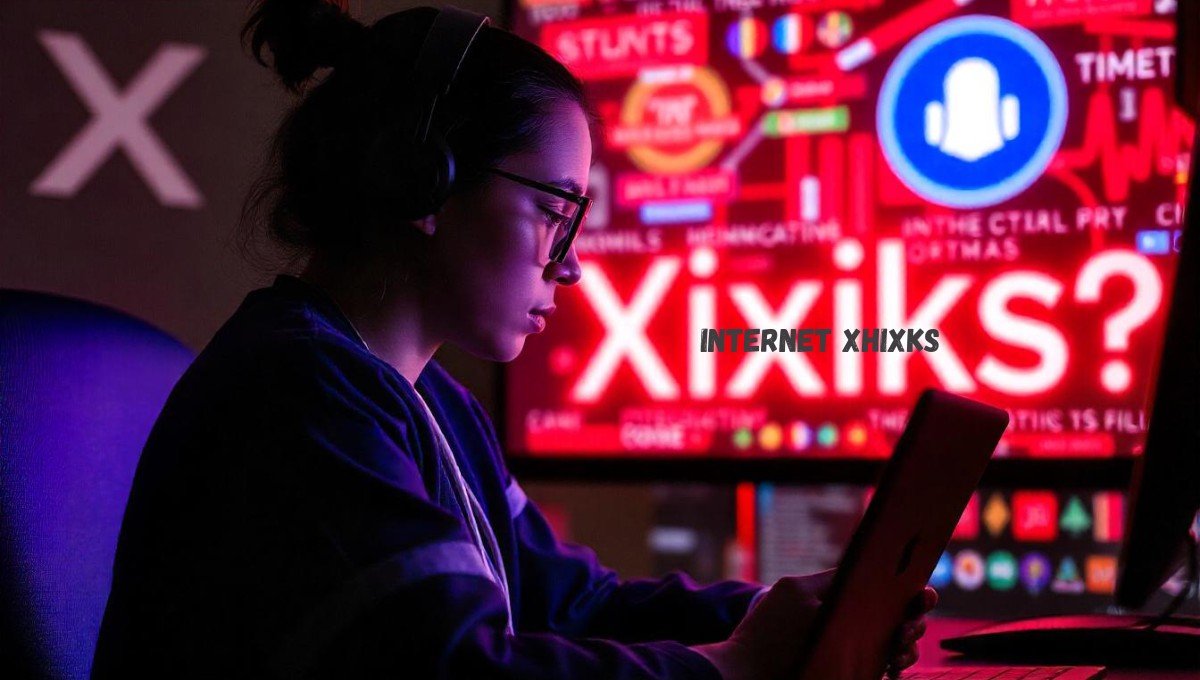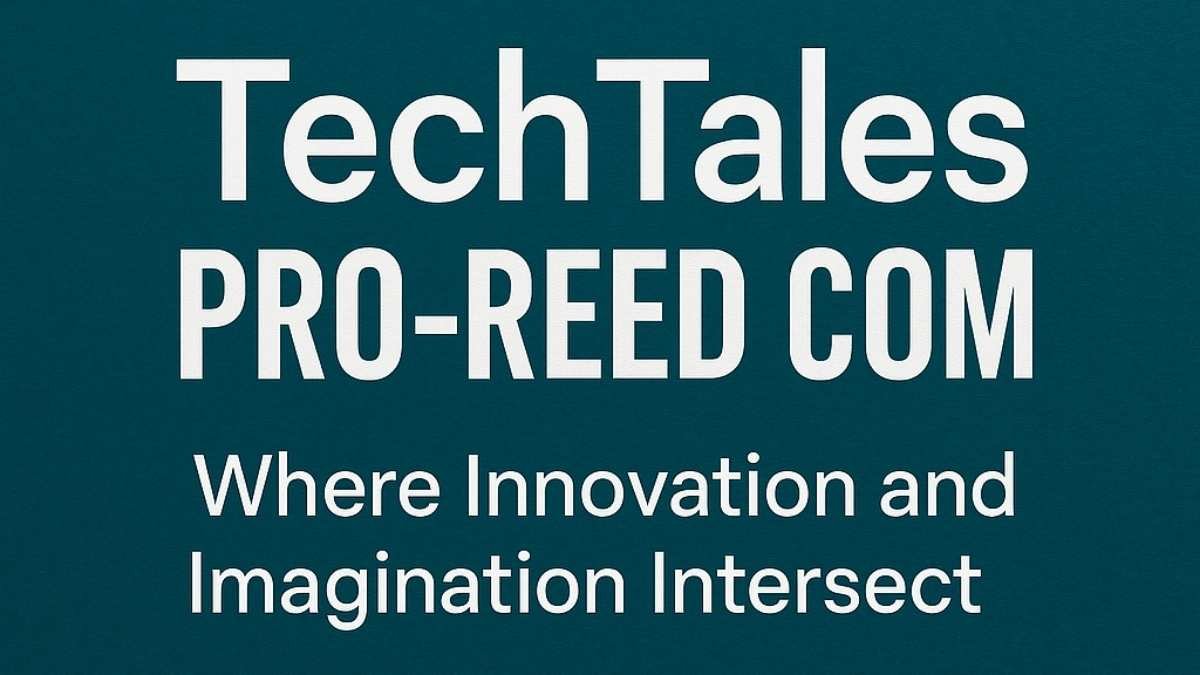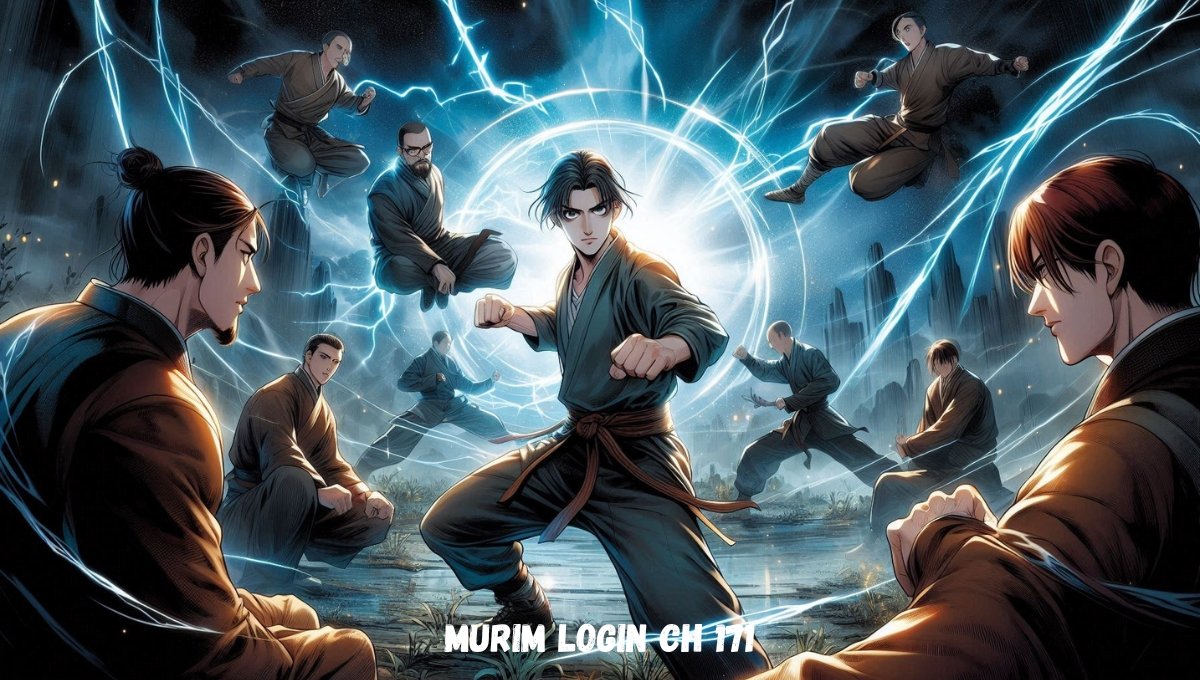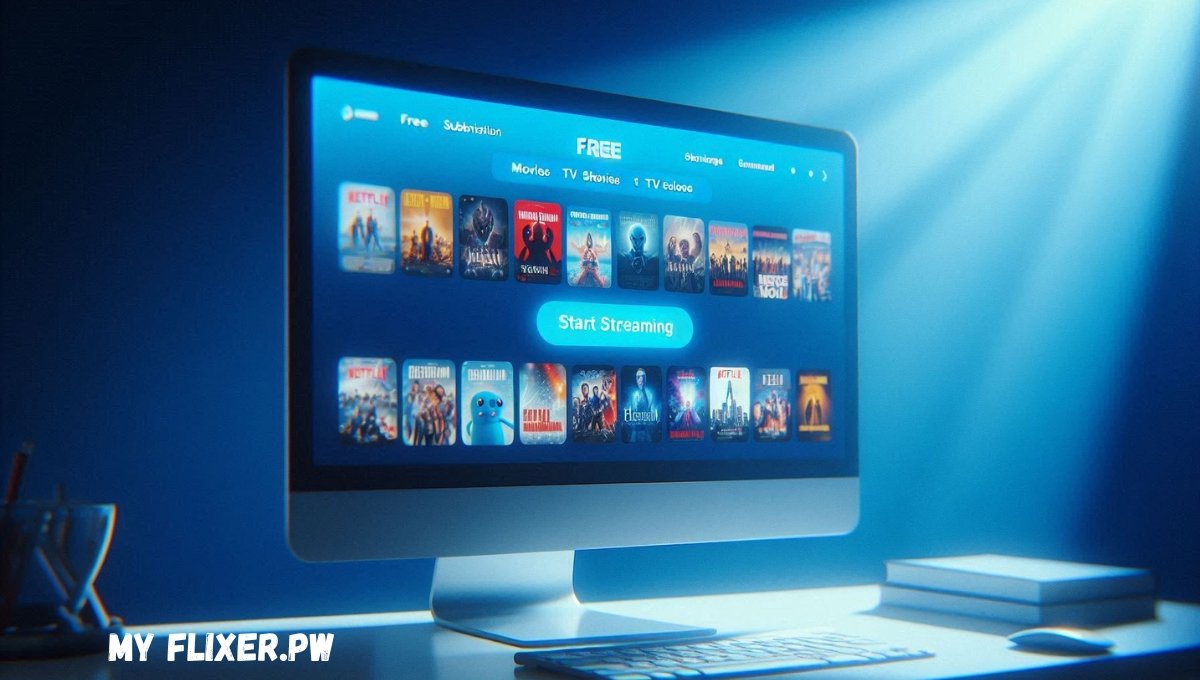Technology
What is Internet Xhixks? Uncovering the Mystery Behind the Term

Introduction to Internet Xhixks
The term “Internet Xhixks” is an intriguing phrase that has recently begun circulating in various online spaces. As with many buzzwords, its meaning and significance are often ambiguous, causing widespread curiosity. What exactly are ‘Internet Xhixks’? Where did this term originate, and why has it gained traction on the internet?
In this article, we will break down the possible meanings behind this phrase, explore its origins, and analyze how it fits within the broader context of internet culture.
Understanding the Term ‘Internet Xhixks’
To unpack the meaning of “Internet Xhixks,” it’s essential to look at the two parts of the phrase: “internet” and “xhixks.” The first part, “internet,” is self-explanatory, referring to the global network we use for communication, information, and entertainment.
However, “xhixks” is less clear. It appears to be a variation or evolution of “chicks,” a colloquial term used to refer to young women. In this case, “xhixks” could be interpreted as an intentional misspelling or play on the original word, possibly used to stand out in digital conversations.
Origins of the Word Xhixks
The origins of “xhixks” remain somewhat mysterious. Many internet terms evolve organically, often appearing without clear attribution or explanation. However, this playful spelling may be part of a trend in online language where familiar words are altered for stylistic effect, often to create a unique identity or to avoid detection by search algorithms. It could also be part of niche internet subcultures that thrive on exclusive jargon.
In the early 2000s, internet slang began to evolve rapidly as digital communication became more informal. “Xhixks” may fit within this broader context, where spelling alterations are common.
Internet Xhixks: A New Digital Subculture?
As with many online trends, the term “Internet Xhixks” could signify more than just a playful twist on language. It may represent a new, emerging digital subculture. Just as terms like “e-girls” or “VSCO girls” have defined specific online personas, “Internet Xhixks” could be a label that users embrace to describe a certain type of behavior, appearance, or mindset associated with online life.
This subculture could involve elements such as fashion, humor, and digital fluency, often centered around specific platforms like TikTok, Instagram, or Twitter.
The Role of Social Media in Popularizing Xhixks
Social media plays a pivotal role in the spread and development of online slang and subcultures. Platforms like Instagram, TikTok, and Twitter have become hotbeds for new terms and trends, and “Internet Xhixks” may have gained popularity thanks to these networks. Memes, hashtags, and viral videos all contribute to the life cycle of such terms, turning what may have started as an obscure joke into a widespread phenomenon.
Additionally, influencers or online personalities could have played a part in the dissemination of the term “xhixks,” either by directly using it or indirectly referencing it.
Internet Xhixks and Internet Slang Evolution
The evolution of internet slang is fast-paced, and new words or phrases can become popular overnight. “Internet Xhixks” appears to be part of a broader trend where internet users modify conventional language to create something fresh and engaging. In this sense, the term reflects the ongoing shift in how digital natives communicate—through playful and often cryptic modifications of traditional vocabulary.
Slang like “xhixks” is often transient, but some terms do stick around and shape the way we engage online, potentially giving “Internet Xhixks” more longevity in the digital lexicon.
Potential Interpretations of Xhixks
There are a few potential interpretations of the term “xhixks.” First, it could simply be a modern twist on referring to women in online spaces, emphasizing digital presence and identity. Another interpretation could be more subversive, with “xhixks” symbolizing an empowered form of self-identification in the digital age, where individuals create and curate their own personas.
Additionally, the term might not even refer exclusively to gender, but rather to a broader concept of how people present themselves on the internet—highlighting the performance aspect of digital interactions.
Internet Memes and Xhixks
Memes have an undeniable impact on language. The term “Internet Xhixks” might originate or be tied to a meme, either referencing a specific internet trend or serving as a label for certain types of humor or content. Memes often involve satire, and it’s possible that “xhixks” is part of a broader commentary on online stereotypes or behaviors.
Memes allow users to spread ideas rapidly, and a catchy term like “xhixks” could have started in meme culture before spilling over into mainstream internet conversation.
How Internet Xhixks is Shaping Digital Communication
“Internet Xhixks” has the potential to influence how people communicate online, especially if it continues to gain momentum. Whether as a meme or part of a subculture, this term could evolve to signify specific types of digital expression.
Just as internet slang like “bae,” “lit,” or “yeet” has impacted everyday conversations, “xhixks” might represent a new addition to the lexicon, shaping how internet users—particularly younger generations—express themselves.
Internet Xhixks: Empowerment or Stereotype?
A critical discussion surrounding the term “xhixks” is whether it represents a form of empowerment or if it perpetuates stereotypes. The playful and often irreverent nature of internet slang means that such terms can be difficult to interpret at face value.
“Xhixks” could be a term of endearment used within certain circles, where it symbolizes confidence and digital savviness. Alternatively, it could be seen as a reductive or stereotypical portrayal of women online. The interpretation may depend on context and the communities that adopt the term.
Challenges and Criticism Surrounding Internet Xhixks
As with many internet phenomena, “Internet Xhixks” is not immune to criticism. Online slang often faces backlash, especially when it is perceived as trivializing serious issues or reducing people to superficial characteristics. Some may view “xhixks” as reinforcing outdated gender norms, while others may criticize its exclusivity or lack of clear meaning.
Moreover, the rapid evolution of internet language means that terms like “xhixks” can quickly become outdated or lose their original meaning, making them vulnerable to misuse or misunderstanding.
Cultural Relevance of Internet Xhixks
The cultural relevance of “xhixks” lies in its ability to capture the shifting dynamics of online identity and communication. The internet is a constantly evolving space where new trends and terms emerge to reflect contemporary issues. In this way, “Internet Xhixks” can be seen as a reflection of how people navigate and present themselves in digital environments.
Xhixks in Pop Culture and Online Communities
Internet subcultures often intersect with pop culture, and “xhixks” could be making its way into mainstream media through music, art, or even fashion. Online communities, particularly those centered around social media platforms, are likely to influence how “Internet Xhixks” develops and whether it becomes a fixture in popular discourse.
The Future of Internet Xhixks
The future of “Internet Xhixks” will depend on whether the term gains further traction or fades into obscurity. As internet trends come and go, it’s difficult to predict the staying power of any single term. However, the adaptability and playfulness of internet culture suggest that “xhixks” could evolve into something more significant or transform into another variation altogether.
Conclusion
“Internet Xhixks” is a term that encapsulates the ever-evolving nature of digital language. While its exact meaning may still be debated, its emergence signals the continuing trend of online communities creating and adopting unique jargon to express identity and culture. Whether it represents a fleeting meme or a deeper digital subculture, “Internet Xhixks” is a fascinating reflection of modern internet dynamics.
Technology
When Technology Meets Self-Care: The Future of Scar Revision

As people continue to seek more effective, convenient ways to improve their appearance and well-being, the intersection of technology and self-care has gained significant attention. One area where this fusion is making a noticeable impact is in scar revision – a field that has seen revolutionary advancements thanks to modern technologies.
Scar revision involves techniques that aim to improve the appearance of scars, whether from surgery, injury, burns, or acne. Historically, scar treatment options were limited, often relying on topical creams, ointments, and traditional surgical methods. Today, with cutting-edge technologies, scar revision has become more precise, minimally invasive, and effective, allowing individuals to feel confident in their skin again. Let’s explore how technology is transforming scar revision and how it fits into the modern self-care routine.
Table of Contents
Understanding Scar Revision: What Is It?
Scar revision is the process of improving a scar’s appearance, texture, or colour. While scars are a natural part of the healing process, they can sometimes be disfiguring or cause self-esteem issues, particularly when they are prominent or noticeable. Scar revision treatments aim to reduce the size of scars, improve their colour, and blend them more seamlessly with the surrounding skin.
Scar revision techniques can vary depending on the type and location of the scar. Traditional surgical methods include excision or resuturing scars to make them less visible. However, with advancements in medical technology, more sophisticated, non-invasive options are now available that can deliver excellent results without the need for extensive recovery or significant downtime.
How Technology Is Shaping the Future of Scar Revision
Laser Therapy: Targeting Scar Tissue with Precision
One of the most significant technological advancements in scar revision has been the development of laser therapies. Laser treatments use focused light energy to target scar tissue, breaking it down and stimulating the skin’s natural healing processes. The precision of lasers allows for a more targeted approach, which is ideal for scar revision.
- Fractional CO2 Laser: This is one of the most commonly used lasers for scar revision. It creates micro-injuries in the skin, stimulating collagen production and resurfacing the skin. Fractional CO2 lasers are particularly effective for deep scars, such as those caused by acne or surgery.
- Pulsed Dye Laser (PDL): PDL is particularly effective for treating red, raised, or inflamed scars. Targeting blood vessels within the scar tissue helps reduce redness and promote healing. PDL is commonly used for hypertrophic scars and keloids, which can be challenging to treat with other methods.
Laser therapies are noninvasive and have gradual results, which is why they are such a popular option for those seeking to improve their scars without undergoing surgery. With minimal downtime, patients can return to their daily activities, benefiting from improved skin texture and scar appearance.
Microneedling: Stimulating Skin Repair from Within
Another innovative technology that has revolutionised scar revision is microneedling. Also known as collagen induction therapy, microneedling uses tiny needles to create micro-injuries in the skin. These controlled injuries trigger the body’s natural healing process, stimulating collagen and elastin production, which helps improve the appearance of scars.
Microneedling is particularly effective for superficial scars, such as those caused by acne or minor cuts. The treatment encourages skin regeneration and can significantly reduce the visibility of scars by smoothing out skin texture and improving overall tone.
One of the major benefits of microneedling is that it can be used on various parts of the body, including sensitive areas such as the face, neck, and décolletage. For best results, microneedling can be combined with other treatments, such as growth factor serums or PRP (platelet-rich plasma) therapy, to enhance the healing process further.
Platelet-Rich Plasma (PRP) Therapy: Harnessing the Body’s Healing Power
PRP therapy, also known as the “vampire facial” when used for facial treatments, is a cutting-edge treatment that uses the patient’s own blood to stimulate healing and improve skin texture. In PRP therapy, blood is drawn from the patient, and the platelets (which contain growth factors) are separated and concentrated. The PRP is injected into the skin or applied to the area after microneedling.
PRP therapy promotes tissue regeneration, accelerates the healing process, and stimulates collagen production for scar revision. The results are a smoother, more even skin tone and a reduction in the appearance of scars. Since PRP uses the patient’s own blood, the risk of allergic reactions or complications is minimal, making it a safe and effective option for many individuals.
PRP can be particularly helpful for scars that are deep or persistent, such as those resulting from surgery, trauma, or severe acne.
Cryotherapy: Freezing Away Scar Tissue
Cryotherapy is a technique that involves freezing the scar tissue using extreme cold temperatures. This causes the scar tissue to break down and stimulates the body’s natural healing response. Cryotherapy is most often used for treating keloid scars, which are raised, thick scars that can be difficult to treat with other methods.
While cryotherapy is effective for certain types of scars, it is often used in combination with other treatments, such as laser therapy or microneedling, to provide the best results. This technique is minimally invasive and generally requires little to no downtime, making it an appealing option for those looking to improve their scars without undergoing more invasive procedures.
Topical Treatments: Enhancing Healing with Technology
While advanced technology plays a significant role in scar revision, topical treatments are still essential to the healing process. Advances in topical formulations have led to the development of more effective products for improving scar appearance.
- Silicone Gel Sheets are often used to flatten and soften raised scars. They help hydrate the scar tissue and create a barrier that promotes healing, improving the texture and appearance of scars over time.
- Growth Factor Serums are rich in proteins and peptides, helping stimulate collagen production and accelerate skin repair. To enhance healing, these serums can be applied topically after microneedling or laser therapy.
These topical treatments support the healing process, providing added benefits when used with advanced technologies.
How Technology Aligns with Modern Self-Care Practices
The growing interest in scar revision treatments is part of a larger trend where technology and self-care intersect. As individuals become more conscious of their appearance and invest in self-care routines, they turn to advanced, non-invasive treatments that offer long-lasting results with minimal downtime. Scar revision technologies offer people a way to invest in their skin’s health, restore confidence, and reduce the emotional impact of scars, all while fitting seamlessly into modern self-care regimens.
Incorporating these treatments into one’s self-care routine allows for precision healing. With the right combination of technology and professional expertise, individuals can see real improvements in their skin’s appearance and texture without undergoing lengthy recovery periods or invasive procedures. These treatments promote aesthetic benefits and support overall well-being, as feeling good about one’s appearance often leads to increased self-esteem and confidence.
As people continue to prioritise self-care, the role of advanced technology in supporting skin repair will only grow. If you want to improve the appearance of your scars, modern treatments provide a range of options that can seamlessly fit into your self-care routine, helping you feel confident and rejuvenated in your skin.
Technology
Techoelites.com/: Revolutionizing Smart Living with Innovative Home Solutions

In today’s fast-paced digital world, the demand for smart technology is rising—especially in how we interact with our homes. Among the platforms leading the charge is Techoelites.com/, a forward-thinking brand that blends intelligent design with cutting-edge automation. If you’re exploring ways to upgrade your home with modern tech or simply want to understand how smart systems can improve daily life, Techoelites.com/ is a name worth knowing.
Let’s dive into what makes this platform stand out and why it’s becoming a go-to destination for smart living enthusiasts.
Table of Contents
What Is Techoelites.com/?
Techoelites.com/ is a modern tech platform that specializes in smart home solutions. It focuses on integrating advanced technologies into everyday home features, making life not only more convenient but also more secure and energy-efficient. From smart lighting and voice-activated assistants to fully automated security systems, the site offers insights, reviews, and products that cater to the evolving smart home market.
Whether you’re a homeowner looking to upgrade your living space or a tech enthusiast staying on top of the latest trends, Techoelites.com serves as both a resource hub and a smart home guide.
The Growing Popularity of Smart Homes
The concept of smart homes has taken the world by storm, and it’s easy to see why. The integration of AI and IoT (Internet of Things) into home settings enables users to:
- Control lighting, temperature, and appliances remotely
- Monitor home security via smart cameras and sensors
- Automate daily routines with voice commands or mobile apps
- Save energy and reduce utility bills
Techoelites.com/ captures this movement perfectly, offering products and knowledge that make smart living accessible and user-friendly for all experience levels.
Key Features That Make Techoelites.com Stand Out
1. User-Centric Design and Accessibility
One of the highlights of Techoelites.com/ is its intuitive interface and content layout. It doesn’t bombard users with technical jargon. Instead, it simplifies complex smart home concepts into digestible guides and reviews that anyone can understand.
2. Comprehensive Product Reviews
The platform offers detailed product insights, helping users compare options before making a purchase. Whether you’re considering a smart thermostat, doorbell camera, or home assistant device, Techoelites.com provides honest reviews and recommendations based on functionality, ease of use, and value.
3. Guides and Tutorials for DIY Enthusiasts
For homeowners who prefer a hands-on approach, the website includes DIY installation guides, troubleshooting tips, and step-by-step tutorials. These resources empower users to set up and maintain their smart systems without needing professional help.
4. Security and Privacy Tips
As smart home systems become more prevalent, concerns about privacy and digital security grow. Techoelites.com/ addresses these concerns by offering advice on how to protect your devices from hacking and secure your network properly.
Why Choose Techoelites.com/ for Smart Home Advice?
While there are plenty of tech blogs and review sites out there, Techoelites.com brings something different to the table: a focused and practical approach to smart living. The platform isn’t just about showcasing the latest gadgets—it’s about helping users create a connected ecosystem that suits their lifestyle.
You can also find real-user experiences, insights into tech trends, and answers to common issues, making it a trusted source in the growing smart home community.
Future Trends: What’s Next in Smart Living?
Techoelites.com/ keeps its readers updated on the future of smart technology. Here are a few trends the platform is currently exploring:
- AI-Powered Automation: Enhanced home assistants that learn from behavior and adapt automatically.
- Sustainable Smart Devices: Eco-friendly gadgets designed to reduce energy consumption.
- Integration Across Platforms: Seamless control between devices from different brands through universal smart hubs.
By staying ahead of the curve, Techoelites.com ensures users are not just reacting to the present but preparing for the future of intelligent living.
Final Thoughts
Smart homes are no longer a futuristic fantasy—they’re becoming the norm. Platforms like Techoelites.com/ are playing a crucial role in making that transition smooth, affordable, and enjoyable. Whether you’re taking your first steps into home automation or expanding an existing setup, this platform provides everything you need to make informed, smart decisions.
If you’re ready to transform your living space with the power of technology, Techoelites.com/ is a great place to start.
FAQs About Techoelites.com/
1. Is Techoelites.com/ a store or just a blog?
Techoelites.com/ functions primarily as an informational and review-based platform. While it may feature product links, its main goal is to educate users on smart home technology.
2. Is the content on Techoelites.com/ beginner-friendly?
Yes, the site is designed with beginners in mind. It offers simple guides, tips, and product comparisons that are easy to understand, even if you’re new to smart home tech.
3. Does Techoelites.com/ recommend specific smart home brands?
Techoelites.com/ provides unbiased reviews of various brands, helping readers decide which devices are best for their specific needs and budgets.
4. Can I trust the reviews on Techoelites.com/?
Yes. The platform emphasizes transparency and aims to provide honest, experience-based reviews rather than promotional content.
5. How often is the site updated with new content?
Techoelites.com/ regularly publishes new articles, reviews, and tutorials to keep readers up to date with the latest trends in smart home technology.
Technology
TechTales Pro-Reed Com: Where Innovation and Imagination Intersect

In the ever-evolving world of technology and storytelling, TechTales Pro-Reed Com is fast becoming a name synonymous with innovation, creativity, and forward-thinking solutions. As more users, creators, and tech enthusiasts seek platforms that go beyond the basics, Pro-Reed Com has emerged as a dynamic hub blending immersive narratives with cutting-edge technological tools.
From reshaping how stories are told to enabling creators with powerful digital experiences, TechTales Pro-Reed Com is carving out a unique space at the intersection of storytelling and technology.
Table of Contents
What is TechTales Pro-Reed Com?
TechTales Pro-Reed Com is a digital ecosystem designed to enhance storytelling through technological innovation. While traditional platforms focus solely on content delivery, Pro-Reed Com integrates artificial intelligence, machine learning, interactive visuals, and real-time engagement features to elevate how stories are experienced.
The core idea behind the platform is simple yet powerful: to bring imagination to life using modern tech tools. Whether you’re a content creator, digital artist, educator, or tech enthusiast, TechTales Pro-Reed Com offers a compelling suite of features that cater to diverse needs in the creative and tech industries.
A New Era of Digital Storytelling
From Passive Consumption to Active Participation
What sets TechTales Pro-Reed Com apart is its focus on interactive storytelling. Instead of merely reading or watching content, users become part of the experience. With advanced personalization algorithms, stories can adapt based on user behavior, preferences, or even real-time decisions—making each narrative journey unique.
This shift from passive content consumption to active participation marks a significant leap in digital content evolution.
AI-Driven Content Curation
Pro-Reed Com utilizes artificial intelligence not just for user data analysis but to actively contribute to content creation. Writers and content producers can harness AI-driven tools to brainstorm ideas, structure plots, develop characters, or even generate dialogue suggestions. This kind of tech-assisted creativity helps creators overcome writer’s block and streamline production workflows.
Core Features of TechTales Pro-Reed Com
1. Seamless Integration with Creative Tools
Pro-Reed Com doesn’t force users into a single platform or rigid format. Instead, it integrates smoothly with popular creative tools and platforms, such as Adobe Creative Suite, Unity, and open-source storytelling engines. This allows creators to maintain their preferred workflows while leveraging the power of the platform.
2. Community-Centric Design
At its heart, TechTales Pro-Reed Com is also a community-driven platform. Users can collaborate on projects, share feedback, and co-create stories in real time. This fosters a creative ecosystem that thrives on shared knowledge, mentorship, and continuous innovation.
3. Real-Time Analytics and Feedback Loops
Creators can track user engagement in real time—understanding which parts of the story are most engaging, where users drop off, and how interactive elements influence user behavior. These insights are invaluable for refining content strategies and improving audience retention.
4. Multi-Format Publishing
From blogs and podcasts to VR experiences and animated shorts, TechTales Pro-Reed Com supports multi-format storytelling. This opens up endless creative possibilities for storytellers aiming to reach audiences across different channels and devices.
The Vision Behind the Platform
TechTales Pro-Reed Com was born from a simple yet ambitious vision: to bridge the gap between imagination and reality using the power of technology. The founders, a mix of technologists, writers, and digital artists, understood that the future of content lies in experiences rather than just consumption.
By building a platform that empowers storytellers with intuitive tech tools, Pro-Reed Com is redefining how stories are told and experienced in the digital age.
Who is TechTales Pro-Reed Com For?
Whether you’re a novelist looking to experiment with interactive fiction, a teacher wanting to gamify educational content, or a brand aiming to connect with your audience through immersive campaigns, TechTales Pro-Reed Com provides the infrastructure and inspiration you need.
Ideal Users Include:
- Independent writers and authors
- Filmmakers and animators
- Educators and ed-tech professionals
- Digital marketers and branding teams
- Game designers and developers
Why It Matters Today
In an age where attention spans are shorter and competition for digital eyeballs is fierce, traditional content models are no longer enough. Platforms like TechTales Pro-Reed Com are essential because they:
- Encourage deeper engagement through interactivity
- Enable faster content creation with AI support
- Provide creators with tools that were once available only to big studios
- Foster a global creative community
By leveling the playing field, Pro-Reed Com empowers small creators to produce high-quality, immersive content without massive budgets or teams.
FAQs about TechTales Pro-Reed Com
1. What is the main purpose of TechTales Pro-Reed Com?
TechTales Pro-Reed Com is designed to revolutionize storytelling by integrating technology with creativity. It provides tools and a platform for creators to build immersive, interactive, and personalized story-driven content.
2. Is TechTales Pro-Reed Com suitable for beginners?
Absolutely! The platform is built to cater to both beginners and professionals. With an intuitive interface and plenty of tutorials, anyone can start creating compelling content quickly.
3. Does TechTales Pro-Reed Com support collaboration?
Yes, collaboration is one of its key strengths. Users can invite collaborators, co-create content in real time, and even share projects within community forums for feedback and improvement.
4. How is TechTales Pro-Reed Com different from other storytelling platforms?
Unlike traditional platforms, Pro-Reed Com uses AI and interactivity to offer a dynamic storytelling experience. It also supports multi-format publishing and provides real-time analytics to help creators understand their audience better.
5. Is there a cost to use TechTales Pro-Reed Com?
The platform offers a freemium model—basic features are free, while advanced tools and analytics may require a subscription. This makes it accessible for a wide range of users.
Final Thoughts
TechTales Pro-Reed Com isn’t just another tech tool—it’s a gateway into the future of storytelling. By combining the power of innovation with the timeless magic of imagination, it empowers creators to dream big and deliver unforgettable digital experiences. As content trends continue to evolve, platforms like Pro-Reed Com are poised to lead the charge into a more interactive, engaging, and tech-empowered era of storytelling.
If you’re a creator looking to push boundaries and explore new narrative frontiers, TechTales Pro-Reed Com might just be your next creative partner.
-

 Lifestyle8 months ago
Lifestyle8 months ago5 Flabbergasting Moet & Chandon Champagne Gifts
-

 Lifestyle8 months ago
Lifestyle8 months agoUnlock Top Thoughtful Gifts for Every Milestone and Celebration
-

 Blog3 months ago
Blog3 months agoWhat Material is Used in Plate Heat Exchangers Gaskets?
-

 Business7 months ago
Business7 months agoCareer Paths You May Not Have Considered
-

 Blog3 months ago
Blog3 months agoExploring the Concept of Iversær: A Comprehensive Overview
-

 Business8 months ago
Business8 months agoTop Examples of Using Business Process Automation Software
-

 Entertainment4 months ago
Entertainment4 months agoUnlock the Secrets of Murim Login Ch 171
-

 Entertainment6 months ago
Entertainment6 months agoMy Flixer.pw: Your Go-To Platform for Free Movies & TV Shows



















